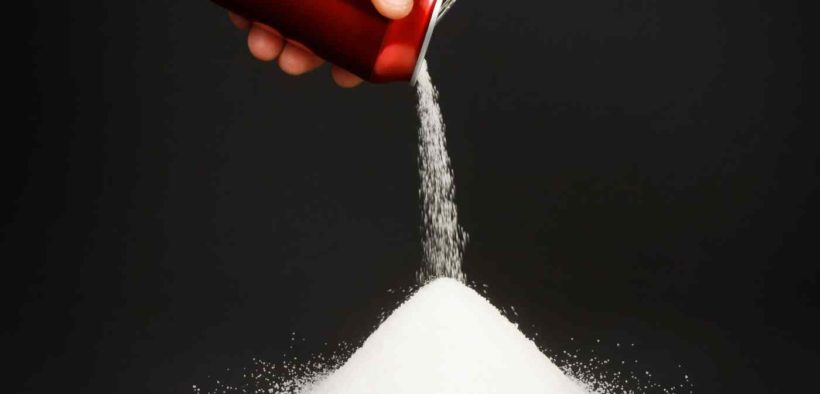Not So Sweet News

Reducing free and added sugar consumption makes sense, and reduces cancer risk
By Dr. Ulhas Ganu
Among proteins, carbohydrates, fat, vitamins, minerals, and water—which is considered to be important nutrients—while the amount of protein to be consumed every day in normal health conditions have been fairly established at 1g/kg body weight/day), there is no RDA for fat, cholesterol, sodium or carbohydrates, possibly because of their abundance in food items. In fact, carbohydrates and fat in food have continued to haunt man because of the dilemma between energy needs which must be met versus weight control (obesity), and the related diseases ranging from diabetes, hypertension and cardiac problems.
Sugar from food is classified as ‘Total Sugar’, ‘Added Sugar’, or ‘Free Sugar’. Total sugar comprises all mono-saccharides (like glucose, fructose) and disaccharides (sucrose, which is cane sugar, or lactose, milk sugar), regardless of the source. Added sugar is that which is added while cooking or by the manufacturer while processing food products. Added sugar is easy to understand but reference to free sugar is conceptual. Thus while sugar in intact fruit belongs to the total sugar category and is okay, once fruit juice is prepared, the sugar present in juice is free sugar.

Justification for this nomenclature appeared weak until reviews and meta-analysis of published literature showed a correlation between energy intake, Type 2 diabetes and dental caries being weakest for total sugars, but most consistent with added and free sugars. The argument for free sugar being a culprit is now not only being accepted, but it is being considered a necessity to increase public awareness about monitoring and controlling the intake of added and free sugar. While the average adult intake of free sugars in Australia is currently placed at ~10% of daily calories (a little higher in children), WHO guidelines recommend a further reduction in the consumption of free sugars at <5% of total energy consumption for additional benefits.
Suspicion about sugar as a culprit in health disturbances goes back decades ago. In a paper titled Diet And Breast Cancer: The Possible Connection With Sugar Consumption (based on epidemiological studies) published in 1983 in Medical Hypothesis, the authors reported a strong correlation between breast cancer mortality and sugar consumption in older women while observing a weaker correlation of marginal interest with fat consumption. The trigger, according to them, was insulin as a larger sugar intake taxes the regulatory mechanism. Dr. Jennifer Ligibel, associate professor of medicine at Harvard Medical School and senior physician at Susan F Smith Center for Women’s Cancers at Dana-Farber Cancer Institute, says, “We know that people who have higher levels of glucose seem to have a higher risk for developing certain cancers, which is particularly true for breast cancer and colorectal cancer.” She does not blame sugar directly but states that there is a strong link between obesity and increased risk for developing 13 different cancer types based upon evaluation by the International Agency for Research and Cancer.
IARC guidelines suggest consuming a primarily plant-based diet with lower levels of meat consumption (preserved meat), as studies have shown a link between consumption of red meat and colon cancer. The May issue of British Medical Journal reports results of a large prospective study conducted over 10 years involving more than 100,000 people. It found that consumption of not only sugary drinks but also 100% fruit juice was positively associated with the risk of overall and breast cancer. While indicating the need for replication in other large-scale prospective studies, sugary drinks, which are widely consumed in Western countries, might represent a modifiable risk factor for cancer prevention.

Nutrition was solely based on food consumption and life was simple before modern science took over. To grow more food and control damage to plantations from infective agents and pests, pesticides came into the picture. This made the problem more complex by bringing in pollutants. As we have discussed before, contamination of food with pesticides, albeit in small amounts, has been linked to cancer. Obesity, pesticides and canned food (preservatives) have all been considered as likely causative factors.
The recommendation for exercise is also to control weight, showing a connection with obesity and not sugar directly. On the other hand, some cancer experts say sugar itself can drive cancer. Dr. Lewis Cantley, director of the Meyer Cancer Center at Weill Cornell Medicine in New York, thinks some cancers may start with high levels of insulin, the hormone that controls the amount of sugar in our blood. He says his research shows that “having high levels of insulin is likely to drive cancer and what drives insulin levels is sugar.” So the overall message is loud and clear: that one needs to cut down free sugar intake. More about this in articles to follow.
















